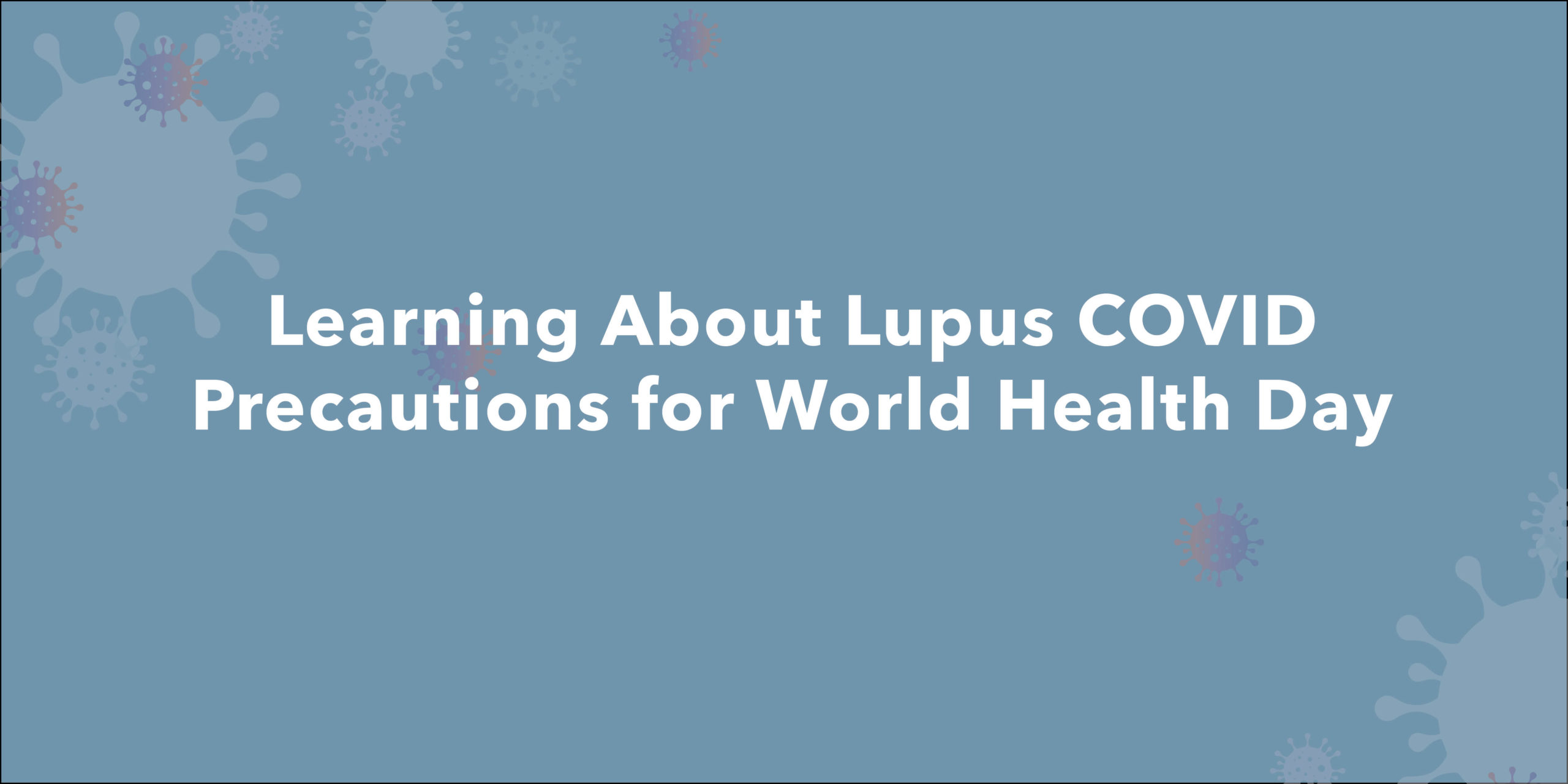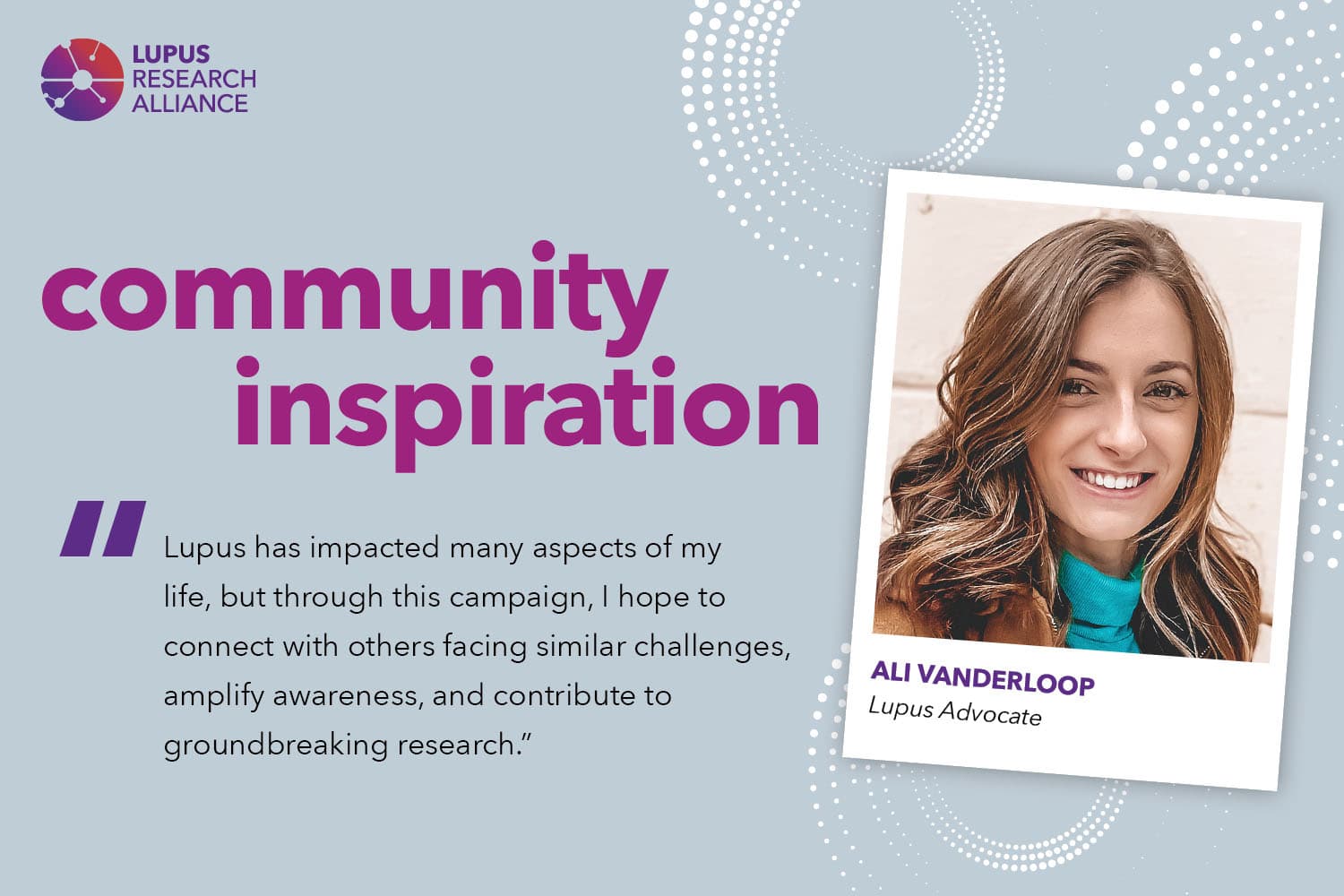Learning About Lupus COVID Precautions for World Health Day

Learning About Lupus COVID Precautions for World Health Day
April 6, 2022
The World Health Organization (WHO) designated today as World Health Day to focus global attention on threats to everyone’s health. The COVID-19 pandemic has been such a threat and continues to endanger the health of those who are immunocompromised from disease or medical treatments such as people with lupus. To observe the day, we chose to ask people with lupus what they are doing to maintain their health as many COVID-19 restrictions are being lifted.
Hear from Lupus Advocate Jiwa Farrell
Jiwa Farrell is facing the evolving COVID-19 situation as a fierce advocate for herself and the lupus community. With any organization she is a part of, Jiwa fights for a virtual option to allow her and others to join. Her doctors have been willing to see her virtually whenever possible. And Jiwa’s college continued offering customized online classes scheduled around her needs so she could finish her degree. While wearing her own mask wherever she goes, Jiwa will involve whatever authority she can to make sure others are complying with remaining mask mandates in situations like doctors’ offices and medical transportation vehicles. And she defies any ridicule preferring disapproval to risking her health.
Meanwhile, she is just as determined to make her home space safe, going to extra lengths to sanitize everything. That means whenever she comes home, immediately discarding her mask, taking off shoes in the entryway, throwing her clothes into the washing machine, washing hands, and taking a shower. Shoes, floors, counters, groceries, deliveries all get Lysoled. No workmen are allowed in the home, so Jiwa’s husband has gotten pretty handy watching how-to YouTube videos! And Jiwa appreciates that they both like to cook as no take-out food is permitted.
Always an Educator, Judith Mills
With a Master’s degree in Biomedical Science, Judith Mills knows her stuff and is very comfortable advocating for herself and others through education. For instance, she is speaking with local politicians to let them know why restricting the number of people who can share one medical van for doctor appointments is critical for those who are immunocompromised. And she has succeeded in getting her grocery store and other shops to make accommodations for people with disabilities. She even got the company Whole Foods to adapt their national policies to meet the needs of people with invisible illnesses that put them at risk for infections.
Now she’s thinking of returning to teaching college courses. “I’ll go back to wearing gloves to pick up students’ tests or papers.” Judith is particularly careful about changing and disposing of gloves, cautioning that when you touch a door handle and then pick up a box of cereal, you’re transferring germs from one surface to another.
Several of our support group members had strong words on the subject
We also posed the question of how to handle the waning COVID-19 restrictions to our support group members. They varied on the degree of restrictions they live with, but one thing they all agreed on: the need to do what you must to protect your own health and ignore what other people may think!
“Having lupus, we already had a tough skin to disregard other people’s reactions to our taking care of ourselves. I just know, I have to be responsible for taking care of myself. I am doing the best I can for me and hopefully for someone else,” commented Anne.
Sylvia echoed: “If I’m on an elevator and a lot of people get on, I’ll get off. I don’t care if they laugh! The laugh is on you, not me cause I’m not getting COVID.”
Sherillee agreed. “If I see an elevator is crowded, I’ll wait for the next one. I’m back to normal activities somewhat, but I still maintain social distance. I won’t ask others to comply – I’ll just move away.”
Qiana answered, “If someone looks at me funny when I’m wearing my mask, they can’t see my mouth, but I just smile at them with my eyes!”
5 Tips from Fellow Lupus Warriors:
Following is a summary of takeaway suggestions from these conversations. Follow what works for you!
- Ask for your needs to be met – if you see something that could help, say something.
- Wear your mask, no matter what other people do or think. Wear an N-95 mask when you’ll be in a particularly risky situation where you might be exposed.
- Ask drivers of public or medical transportation to wear a mask. Explain why. But if you’re on public or share-ride transportation and the driver or others are not wearing masks, open the window a little to circulate fresh air.
- Also avoid crowds – consider waiting for another bus if it’s too crowded, going to a restaurant before the dinner rush, or going to a movie in the morning when few people attend.
- Continue lots of hand washing or sanitizer. Wear gloves when doing errands but discard or wash – don’t reuse.



